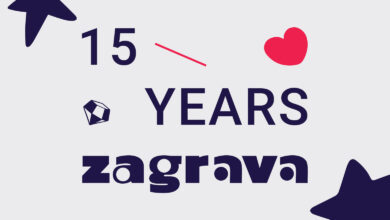Tips for programmers: how to improve your experience and stand out among competitors

Sergey Kostiuk shares his experience
Technical Director at Zagrava
The first tip is for those who have not yet started to delve into programming and are just choosing which language to work with.
Here, you need to weigh all the pros and cons and choose the level of difficulty at which you want to play the game called “learning programming”. You can join the ranks of thousands of C++, Java Script, or C# coders, or focus on mastering a less common or even exotic language.
The nuance is that although mastery of a specific language will set you apart from your competitors (such specialists are rare, in greater demand, and usually have higher offers), the path to becoming a “specialist” will be difficult and not necessarily worthwhile. By choosing the pros and cons, you can always count on a large amount of materials for study, tutorials, and help from more experienced coders.
So: To make learning a programming language easier for yourself, choose one with a strong community.
The next tip is for those who already understand code and know how to work with a version control system.
Are you already a skilled
junior, but still lacking something? Let’s fix it.
Usually, the market values personnel with at least minimal commercial experience, but it is not so easy to get it. You often get caught in the cycle of “to get a job, you need experience – to get experience, you need a job“. Here, a fairly common solution is the recommendation to create your own game (as an indie developer), also called pet-projects. And this is really important, because this is the only way to go through and learn the whole way of game release, and this is one of the most valuable skills that will lead you to work on a big product.
Here are a few points that will help you turn your home game into an awesome project for your portfolio:
1. Try different things – don’t limit yourself to one game, but make several different ones, ideally both 2D and 3D projects. You can get a very good start at hackathons/game jams – usually, brilliant ideas are born at brainstorming sessions, and you can also gain experience in teamwork and learn how to distribute tasks by areas of responsibility.
2. Have you built your project and uploaded it to Github? Good, now try to put it on the market (Play or AppStore). This will be a significant level-up for you, because adapting the game to the requirements of the marketplace, integrating advertising SDKs, adding updates, etc. will show you what will happen to your product after the release. If you manage to do this, you are already a proven sparrow.
P.S. your game doesn’t have to be successful, make money, and be at least in the top 100 downloads in your genre. The employer will appreciate your ability to solve all the problems along the way.
This level is for those who already know a lot, but want to do even more.
No matter what engine you work with, nothing will help you understand its work better than… creating your own.
Have time, inspiration, and a desire to add another interesting point to your CV? Take advantage of articles and tutorials from Youtube and go for it!
An important clarification – you don’t need to reinvent the wheel. It will be enough to recreate an existing engine with your own hands – it’s like redrawing a famous painting by numbers. This way, you will discover the environment you work in from a new perspective, and in the future, if you encounter it, you will be able to solve complex problems in the guts of serious projects.
So, what does a competitive programmer look like?
- Has not just a good CV, but also a high-quality portfolio
- Understands the game lifecycle and has experienced it in practice: created his own project from scratch and brought it to a release on stor
- Has researched the specifics of his/her desired direction and can explain how his/her own code works
- He knows about algorithms, is not afraid to solve non-standard tasks, and, what is important, can understand someone else’s code.


